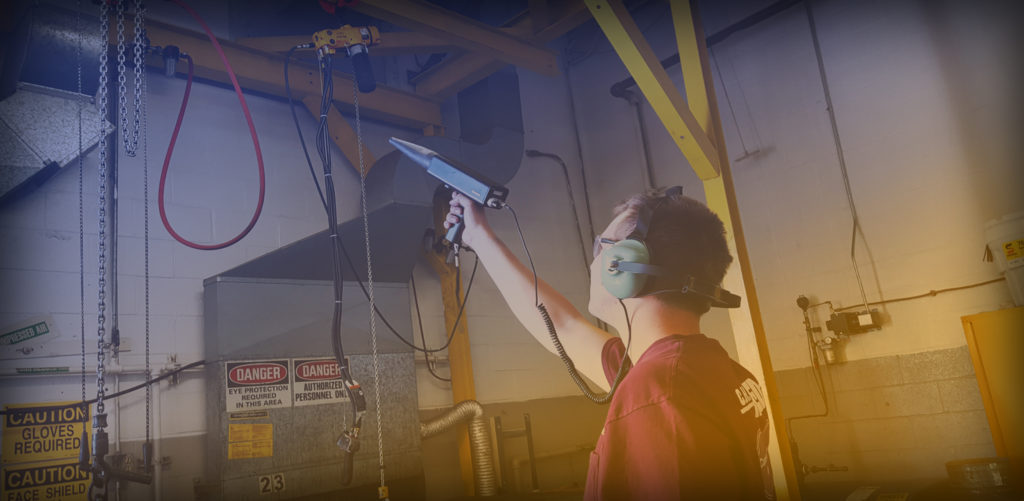Contact our team of experts today!
"*" indicates required fields
Compressed Air Leak Detection
Compressed air systems rely on a constant supply of compressed and pressurized air to operate equipment and heavy machinery in facilities. When these systems are damaged, compressed air leaks can happen, leading to significant losses for the company. Air leaks are detrimental to the efficiency of compressed air systems, hence the importance of early detection and repair.

Reliable Air Leak Detection and Repair From C.H. Reed
Air leaks are common and usually indicate a problem with your compressed air system. Preventive leak detection and repair can help you save thousands on energy costs. At C.H. Reed, we can help you identify air leaks, make the necessary repairs and increase energy efficiency for your business. Here's how:
- Air compressor leak analysis: Our expert will conduct a thorough air audit using advanced ultrasonic sensors to detect compressed air leaks and analyze your system. The process also includes an assessment of potential mechanical, electrical and temperature control issues.
- Detailed metrics and analytics: Our technician will share a comprehensive report on their findings to give you a better understanding of the problem. This report also helps identify cost-saving opportunities for your business.
- Professional repair service: We will do the repairs on the spot for minor issues. For larger problems, we can devise a plan to schedule the repairs and replacements to avoid disrupting your operations.
- Increased energy efficiency and profitability: Upon completion of the repairs, you can expect an increase in your system's energy efficiency, leading to enhanced profitability for your business.
Why Trust Us for Compressed Air Leak Detection?
At C.H. Reed, we provide an array of sustainable solutions for various types and sizes of compressed air systems. We work with manufacturers with the goal of improving their compressed air systems to deliver product quality, productivity and increased energy efficiencies for industrial facilities. We also have a team of experts who develop planned maintenance programs for compressed air systems, including diagnosis, analysis and audits.
Our excellence is evident in the quality of work we provide our clients. Case studies of some of our previous projects show how our products and services perform in various industrial applications. Headquartered in Hanover, PA, with branch locations in Milton, PA, Pittsburgh, PA, Cleveland, OH, and Toledo, OH (along with satellite sales and service personnel scattered throughout our footprint) we can offer our comprehensive compressed air solutions throughout Pennsylvania, Maryland, Delaware, Virginia, West Virginia, Ohio, southern Michigan, and New York state.
Contact C.H. Reed for Compressed Air Leak Services
A comprehensive system means having proper repair and maintenance programs in place. C.H. Reed offers a planned maintenance program for your system, and our team of experts can provide leak detection services, remote monitoring and 24/7 emergency repairs for your equipment. Achieve bigger compressed air energy savings by having foolproof systems in your facilities. Contact us today to schedule a service and learn more about our products.
Contact our team of experts today!
"*" indicates required fields